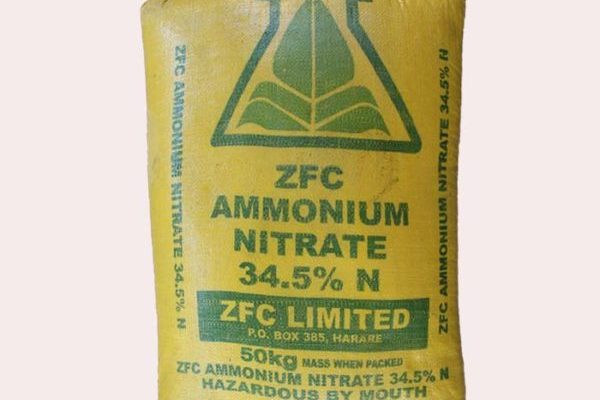Sheltryn Parangira
Yesterday’s cabinet briefing informed the nation that the 2023/2024 summer cropping season preparedness indicates that a total demand of 1 422 500 tonnes of fertilizer is required, targeting three million households for strategic crops.
This was revealed by the Minister of Industry and Commerce, Hon Dr Sithembiso Nyoni yesterday at a post-cabinet briefing on the localisation of fertilizer production in Zimbabwe.
However, she also said that there would be a deficit of 990 317 tonnes of fertilizer for the current season.
”The country is reported to have 77 483 tonnes of stock and 354 700 tonnes in Collateral Managements Agreement which requires US$460 million to unlock the stocks”
”Cabinet advises that the local fertilizer industry has an installed annual production capacity of more than two million MT compounds and blends. The industry is currently operating at 30 percent and the supply gap is being covered by imports.”, said Nyoni.
She said to alleviate the current shortage of fertilizer, the country will import through a variety of potential schemes; the Dorowa Shawa Hills Project and the Wonderful Group of Zambia Joint Venture with Rusununguko/Nkululeko Holdings.
The joint venture is expected to bring in 50,000 metric tonnes of Basal fertiliser and 50,000 metric tonnes of Ammonia Nitrate.
Dr Nyoni advised the nation that there is a Coal-to-Fertilizer project which is being pursued by Verify Engineering.
”Cabinet advises that there is a Coal-to-Fertilizer project which is being pursued by Verify Engineering. Sable Chemicals (Pvt) Ltd is currently exploring the option of local ammonia gas production. The company is also exploring the production of Ammonia Gas using Natural Gas sourced from Muzarabani. The process will utilize the locally available coal to develop ammonia-based fertilizers, thereby fulfilling fertilizer requirements.”
He further stated that Sable Chemicals also signed a Memorandum of Understanding with Invictus which will enable the company to produce 240 000 tonnes of AN fertilizer and 360 000 tonnes of Urea. Stable is also pursuing the option of local ammonia gas products which includes the production of Green Ammonia using solar as the primary source of power.”
”Other innovative measures which will be used to mitigate both the increased volumes and funding requirements for fertilizers will be to use super grades of fertilizers such as Super D instead of Compound D or Urea in place of Ammonium Nitrate. A comprehensive plan of production is underway.”





Comments